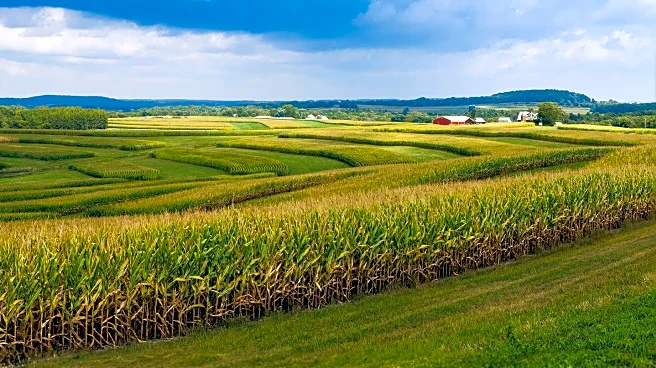What's Happening?
In rural Iowa, farmers like Melissa Wubben are integrating native plants into their agricultural practices to promote sustainability. Native plants, known for their drought tolerance and soil health benefits, are being used to improve water infiltration, prevent erosion, and support biodiversity. Wubben's farm has successfully incorporated native wildflower gardens, which provide habitat for pollinators and other wildlife. The initiative also includes plans to reintroduce wetland species around a pond to enhance water quality and ecosystem health.
Why It's Important?
The integration of native plants into agriculture represents a shift towards more sustainable farming practices. By enhancing soil health and supporting biodiversity, these practices can lead to more resilient agricultural systems. This approach not only benefits the environment but also supports farmers by reducing dependency on external inputs and improving crop yields. As climate change and environmental degradation continue to pose challenges, such sustainable practices are becoming increasingly important.
What's Next?
Wubben plans to expand the use of native plants on her farm, including the introduction of wetland species to improve water quality. This ongoing effort highlights the potential for broader adoption of sustainable practices in agriculture, which could lead to significant environmental and economic benefits. As more farmers recognize the value of native plants, this approach may gain traction, influencing agricultural policies and practices.
Beyond the Headlines
The use of native plants in agriculture also has cultural and educational implications, as it reconnects communities with local ecosystems and traditional knowledge. This approach can foster a deeper appreciation for biodiversity and the natural environment, promoting conservation efforts and sustainable land management.











